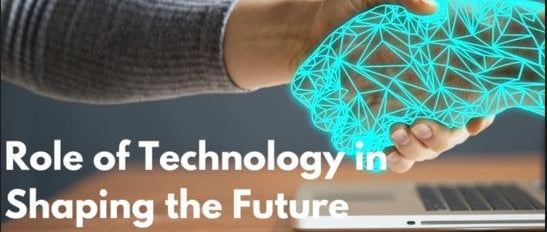Do You Know the Latest Technology Shaping Our Future
Technology is evolving faster than ever before, reshaping the way we live, work, and connect with the world. From artificial intelligence to space exploration, the innovations of today are laying the foundation for the future. Here’s a deep dive into the latest technology shaping our future.
TECH & SCIENCE
Do You Know Team
7/24/20254 min read


Human civilization has always advanced with the help of technology. From the invention of the wheel to the rise of the internet, each breakthrough has dramatically changed our lives. But today, the pace of innovation is so rapid that what seemed futuristic yesterday is becoming reality today. Technologies like Artificial Intelligence (AI), Quantum Computing, Biotechnology, Blockchain, and Space Exploration are not only shaping industries but also influencing our personal lives. The future promises self-driving cars, personalized healthcare, smart cities, and even human settlements on Mars.
Let’s explore the latest technologies shaping our future and understand how they are redefining our world.
1. Artificial Intelligence (AI) and Machine Learning
AI is the backbone of modern technology. From chatbots and virtual assistants to predictive analytics in business, AI is transforming every sector.
AI-powered tools can analyze huge amounts of data faster than humans.
Machine learning helps systems adapt and improve over time.
Industries like healthcare, finance, and education rely on AI for diagnosis, fraud detection, and personalized learning.
The future of AI could lead to general intelligence systems, where machines think and act like humans—raising both excitement and ethical concerns.
2. Quantum Computing – The Next Computing Revolution
Traditional computers use binary code (0s and 1s), but quantum computers use qubits, which can represent multiple states at once.
This allows them to solve problems a million times faster than today’s supercomputers.
Quantum computing can revolutionize drug discovery, cybersecurity, weather forecasting, and financial modeling.
Companies like Google, IBM, and Microsoft are racing to achieve quantum supremacy.
Though still in its early stages, quantum computing could redefine industries and scientific research in the next decade.
3. Biotechnology and Genetic Engineering
Biotechnology is giving humanity the power to edit life itself. With technologies like CRISPR gene editing, scientists can:
Correct genetic disorders.
Create crops resistant to pests and climate change.
Develop personalized medicine tailored to individual DNA.
This opens opportunities to cure diseases like cancer and Alzheimer’s, but it also raises ethical questions about designer babies and genetic manipulation.
4. Blockchain and Decentralized Systems
While blockchain is best known for cryptocurrencies like Bitcoin and Ethereum, its applications go far beyond finance.
It ensures transparent, secure, and tamper-proof transactions.
Governments and corporations are adopting blockchain for identity management, supply chain monitoring, and voting systems.
In the future, decentralized systems could give people more control over data, challenging centralized tech giants.
Blockchain is the foundation for the coming Web 3.0 era, where the internet becomes more user-owned and trustless.
5. Space Exploration and Colonization
The dream of exploring the stars is becoming reality. Companies like SpaceX, Blue Origin, and ISRO are making space travel more affordable.
Missions to Mars and the Moon are no longer science fiction.
Satellites are providing better internet and global communication.
Space mining could unlock resources like rare metals from asteroids.
The coming decades might see humans becoming a multi-planetary species, redefining the future of humanity.
6. Sustainable Energy and Green Technology
Climate change is pushing us to find clean and renewable energy sources.
Solar, wind, and hydrogen fuel technologies are advancing rapidly.
Electric vehicles (EVs) are replacing fossil-fuel cars.
Smart grids and energy storage solutions are making green power reliable.
Future innovations could lead to carbon-neutral cities and help fight global warming effectively.
7. Internet of Things (IoT) and Smart Cities
The Internet of Things (IoT) connects devices, appliances, and infrastructure through sensors and data.
Smart homes with voice-controlled assistants and energy-efficient systems are now common.
Smart cities use IoT for traffic management, pollution control, and waste management.
In the future, IoT could create fully automated cities where everything is connected and efficient.
8. Virtual Reality (VR) and Augmented Reality (AR)
VR and AR are changing entertainment, education, and even healthcare.
VR immerses users in a completely virtual world.
AR blends digital objects into real life, like interactive shopping experiences.
Education and training benefit greatly—medical students can perform virtual surgeries before touching real patients.
In the future, the metaverse—a fully digital universe—could change how we work, play, and socialize.
9. Robotics and Automation
Robots are no longer limited to factories. They are entering homes, hospitals, and even space.
Surgical robots are assisting doctors.
Delivery robots and drones are changing logistics.
Humanoid robots are being developed to assist with caregiving and daily chores.
Automation will boost efficiency but also raise challenges around job displacement.
10. Nanotechnology – The Science of the Tiny
Nanotechnology manipulates matter at the atomic and molecular scale.
It can create super-strong materials.
Nanomedicine may deliver drugs directly to diseased cells, improving treatment.
It has applications in electronics, clothing, and environmental solutions.
Nanotechnology could unlock breakthroughs in medicine and materials science.
FAQs
1. Which technology will impact daily life the most in the near future?
Artificial Intelligence (AI) is already changing our daily lives, from smart assistants to personalized recommendations, and will continue to have the biggest impact.
2. Is quantum computing available for public use?
Not yet. Quantum computers are still in experimental stages, but tech giants are investing heavily to make them accessible in the future.
3. Can biotechnology really cure genetic diseases?
Yes, technologies like CRISPR show promise in correcting genetic disorders, though widespread application will take time and strict regulation.
4. How does blockchain affect more than just cryptocurrency?
Blockchain ensures secure, transparent records, which can be applied to banking, healthcare, supply chains, and even elections.
5. Will robots replace human jobs?
Automation will replace some jobs but also create new ones, especially in tech-driven industries. The key will be reskilling the workforce.
6. What is the metaverse and why is it important?
The metaverse is a virtual shared space where users can interact, work, and play digitally. It could reshape social interaction and business.
7. What role does sustainable technology play in the future?
Green technologies like renewable energy and EVs will help combat climate change and build a sustainable future.
Conclusion
The latest technologies shaping our future are more than just inventions—they are revolutions that will transform how we live, work, and interact. From AI-driven intelligence to life-saving biotech, from quantum computing to space exploration, the world is entering a new era of innovation. But with great progress comes responsibility. Ethical challenges, privacy concerns, and environmental impact must be addressed alongside advancements. The future of technology isn’t just about smarter machines—it’s about creating a better, sustainable, and more inclusive world.
#DoYouKnow #FutureTechnology #ArtificialIntelligence #QuantumComputing #Biotechnology #Blockchain #SmartCities #SpaceExploration #Nanotechnology #Innovation
Knowledge
Empowering minds with reliable educational content daily.
Newsletter Signup
© 2025 DoYouKnow. All rights reserved.
Stay Ahead of the Trends – Join Our Newsletter
